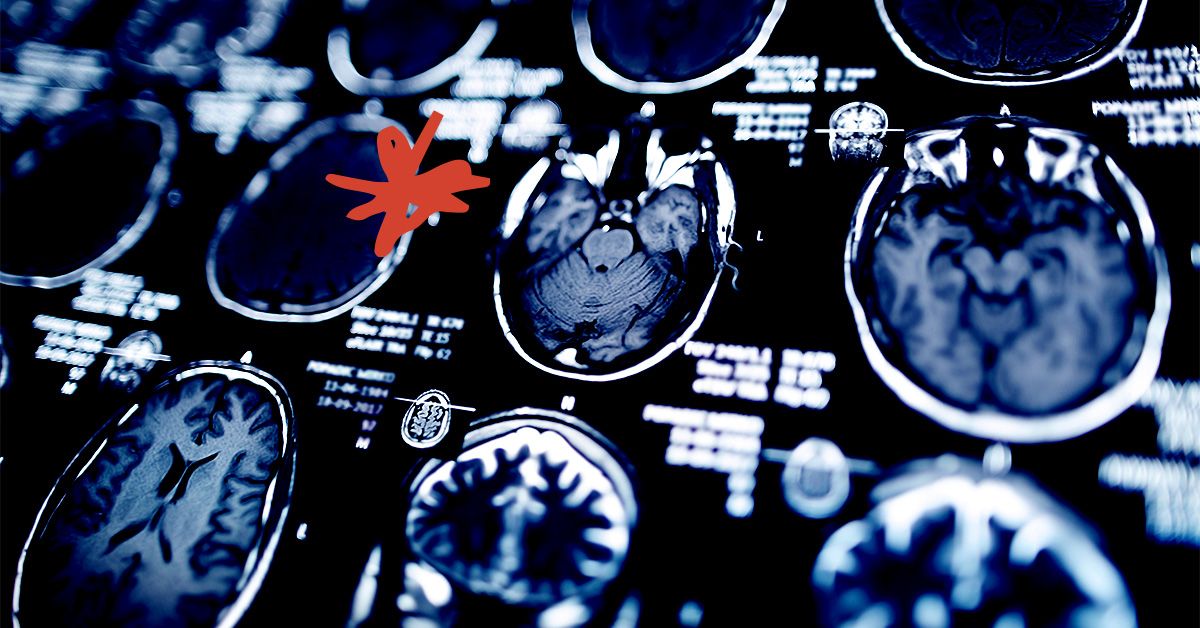- GLP-1 drugs such as Wegovy and Ozempic (semaglutide) and Zepbound (tirzepatide) may offer benefits that extend beyond aiding in weight loss in people who have type 2 diabetes or obesity.
- A new review takes a look at how GLP-1 drugs may offer neuroprotective benefits.
- Since obesity can cause chronic inflammation, including inflammation in the brain, it can also increase the risk of developing neurodegenerative diseases such as Alzheimer’s disease.
- The study examines how GLP-1 medications reduce inflammation in the brain and how these drugs may be able to strengthen the blood-brain barrier.
While these medications are mainly associated with improved insulin sensitivity and weight loss, researchers are learning that the benefits of these GLP-1 drugs may go well beyond these effects.
In addition to research on how GLP-1 drugs may help with addiction and lower risk for certain cancers, a new review shines a light on how this class of medications may provide some degree of brain health protection.
The review examines how GLP-1 drugs can balance the neurovascular unit — the part of the brain that regulates blood flow within the brain — thereby creating the possibility of improving cognitive functioning.
According to the Centers for Disease Control and Prevention (CDC), just over 40% of adults in the United States have obesity, which is defined as having a body mass index (BMI) of 30 or higher.
Chronic low-grade inflammation can contribute to
Researchers describe
This class of drugs works by slowing down gastric emptying, lowering blood sugar levels, and improving satiety. These medications can also help improve metabolism.
The benefits of GLP-1 medications are not limited to only weight loss and improved heart health. More studies are revealing that these drugs can also improve brain health.
Chronic low-grade inflammation can impact the brain by affecting glial cell functioning. Glial cells include:
astrocytes , which perform neuroprotective tasks and form the blood-brain barriermicroglia , which are immune cells that sustain the blood-brain barrier and remove damaged cells in the brain, but changes in which can lead to neurodegeneration.
The blood-brain barrier is especially important since it protects the brain from harmful substances and infection. Inflammation in people with obesity may result in reductions in their blood-brain barriers.
The review addresses how research shows that cell signaling from GLP-1 drugs may interact with these cells and provide brain health benefits.
The review authors noted that a study in mouse models showed the GLP-1 drug liraglutide (Victoza) increased the number of astrocytes.
According to the review, “[GLP-1 receptor] signaling in astrocytes regulates both central and peripheral metabolism, extending from energy balance to neuroplasticity.”
This signaling also enhances neuron growth, and an increase in astrocytes also increases neuron survival.
Another study the review mentioned tested a GLP-1 medication on mice with the neurodegenerative eye disease glaucoma, and found a reduction in “astrocyte transformation and retinal ganglion cell death.”
With microglia, the review shows that some studies believe GLP-1 receptor signaling can reverse inflammation.
“GLP-1R signaling on microglia attenuates neuroinflammation by suppressing the polarization of microglia to a proinflammatory state,” wrote the authors.
If inflammation in the brain could be reversed, this could be especially helpful in neurodegenerative diseases.
The review authors noted that research into the potential brain benefits of GLP-1 medications needs more research but are optimistic about the future of these drugs in how they may boost brain health.
David Hunter, MD, an associate professor of neurology at UTHealth Houston, not involved in this review, spoke with Medical News Today about its findings.
“Decades of research into Alzheimer’s disease [have] shown that inflammation is a key step in disease pathology,” he told us.
Hunter explained how Alzheimer’s disease begins with amyloid plaques and explained that microglia “play a role in the steps that lead to brain cells dying.”
The doctor also said that different trials are just to see how well GLP-1 drugs can help treat Alzheimer’s disease and that “the drug that is closest to FDA [Food and Drug Administration] approval is semaglutide.”
Hunter expected that UTHealth’s own EVOKE trial will announce results on the use of semaglutide for Alzheimer’s in the fall of 2025.
José Morales, MD, a vascular neurologist and neurointerventional surgeon at Providence Saint John’s Health Center in Santa Monica, CA, also not involved in this review, told MNT that “microglia’s effect on the neurovascular unit has been associated with dementia.”
“[GLP-1 drugs] could potentially modulate inflammation to reduce the propensity for developing dementias such as Alzheimer’s disease, particularly in the setting of metabolic syndrome.”
Morales also explained that in people who have glycemia or type 2 diabetes, the inflammation of the blood-brain barrier can “lead to progressive damage to the brain over longer periods.”
He noted that trials that combine neuroimaging techniques that measure the blood-brain barrier and GLP-1 treatment are needed and could prove that these drugs have neuroprotective benefits.
Read the full article here
















